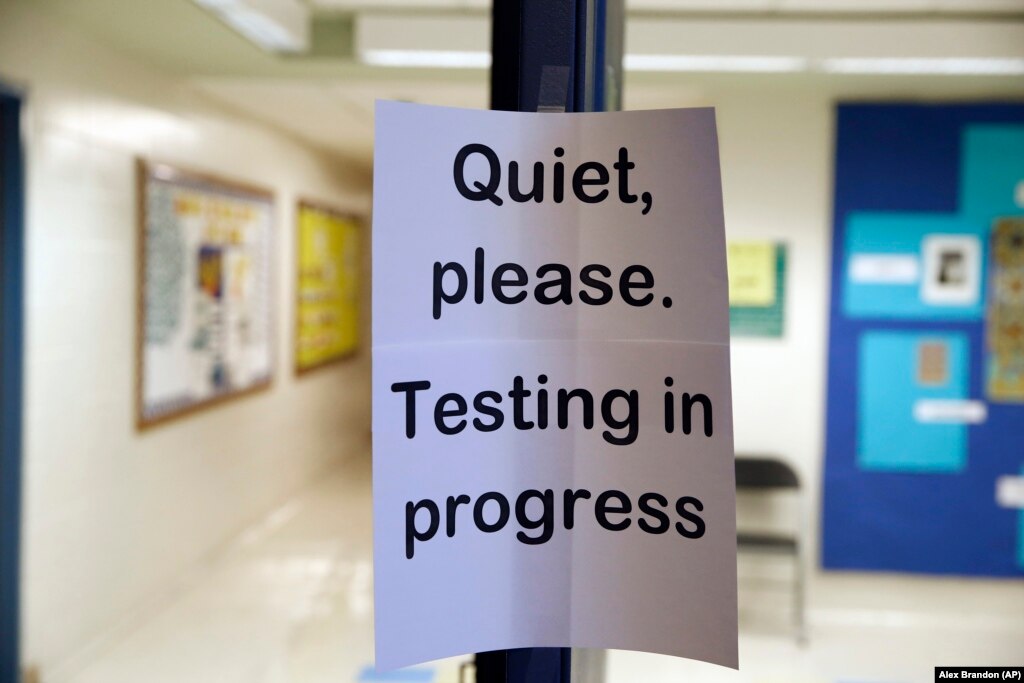
Test centers in China and Macau are canceling the SAT planned for Saturday because of claims of cheating.
The SAT is a standardized test that measures academic ability. Many colleges and universities in the U.S. require students to take the SAT before applying.
The College Board is a private company that develops and administers the SAT. The College Board announced the cancellation of the test in China and Macau on Thursday.
The College Board sent a message explaining the cancellation to several schools that partner with the company. The message said the company chose to cancel the test because of evidence of cheating.
The company said some students had gained access to Saturday’s test materials.
Zachary Goldberg is the senior director of Media Relations for the College Board. Goldberg told VOA, “We act on all information.…We work…to [fight] cheating and to protect the integrity of the SAT.”
Almost 400,000 foreign students registered to take the SAT in 2014.
SAT cheating scandals have happened several times before. The College Board cancelled the SAT across South Korea in 2013 after finding evidence of cheating.
Several Chinese citizens admitted in 2015 to being part of an organized SAT cheating group in the United States. International students in the Pittsburgh area would pay group members to use fake passports and take the SAT test for them.
The new evidence of cheating comes as the College Board prepared to release a new version of the SAT later this month. The last time the company released a new version of the test was in 2012.
Saturday would have been the last time the older version of the test was offered.
Bob Schaeffer is the Public Education Director for the National Center for Fair and Open Testing, or NCFOT. The NCFOT is an organization that works to show the problems with standardized testing. The organization has gathered evidence of SAT cheating in several cases.
Schaeffer said the desire to cheat increases whenever standardized test-makers create a new version of a test.
"There is always tremendous fear of the unknown. Whenever a test is changed, there is a huge surge of students enrolling in test prep courses because… they want to find out what’s on the test.”
He also said people all over the world believe getting a U.S university education is the best path to success.
“Middle class and upper class families overseas believe that a degree from a U.S. institution of higher learning is a passport to future success for their children. And they will do anything for it.”
The College Board said the cancellation is only temporary. The company is planning to let students know when they will be able to take the test next week.
Goldberg said that the company will do more to increase its security. He said, “We [understand] that organizations and individuals will [keep trying] to [beat] the system and find a new way to cheat.”
Goldberg did not say how the company discovered the evidence of cheating.
I’m Pete Musto.
Pete Musto reported and wrote this story for VOA Learning English. Kathleen Struck was the editor.
Now it’s your turn. What are your thoughts about cheating on tests? How should cheating be handled? Let us know in the comments section or on our Facebook page.
Words in This Story
standardized test – n. any form of test that requires all test takers to answer the same questions, or a selection of questions from common bank of questions, in the same way, and that is scored in a consistent manner
academic – adj. of or relating to schools and education
apply(ing) – v. to ask formally for something such as a job, getting into a school or a loan, usually in writing
administer(s) – v. to manage the operation of something
integrity – n. the quality of being honest and fair
scandal(s) – n. an event in which people are shocked and upset because of behavior that is morally or legally wrong
surge – n. a sudden, large increase
enroll(ing) – v. to enter someone as a member of or participant in something
prep course(s) – n. a class the prepares someone for something
institution – n. an established organization


